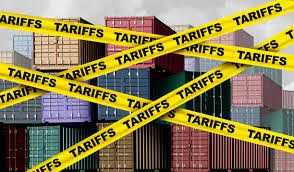When most high school students hear the word tariff, their eyes glaze over. It sounds like something from an economics textbook or a politician’s speech, not something that impacts our everyday lives, but tariffs and taxes on goods imported from other countries affect us more than we think.
Tariffs are supposed to protect American industries by making foreign goods more expensive. In theory, this should encourage people to buy American-made products instead. It sounds like a win for American workers. Well, it’s not that simple.
When the government imposes tariffs on products like steel, electronics, or clothes from other countries, the cost of those items goes up. And who pays the higher prices? We do students, families, schools, and small businesses. If your family has noticed groceries or gadgets costing more lately, tariffs might be the reason.
For example, in recent years, tariffs on Chinese goods have hurt Chinese companies and American businesses that depend on those imports. Many have had to raise prices, cut jobs or both. While some American manufacturers benefited, many others, especially those who rely on imported materials, struggled to keep up.
Plus, tariffs often spark trade wars, in which other countries respond with tariffs on American products. That hurts farmers, tech companies and even car manufacturers. Ultimately, it becomes a cycle of retaliation in which no one wins.
That’s not to say tariffs are always bad. Sometimes, they can help level the playing field when other countries are cheating the system. However, they should be used carefully, not as a go-to tool for economic pressure.
As students, we might not buy imported steel or export soybeans, but we’re still part of the global economy. Every time prices go up at the mall or the cafeteria, we’re reminded that the decisions made in Washington and worldwide don’t stay in the headlines. They show up on our receipts.
So don’t tune out the next time tariffs are in the news, tune in. Understanding how they work and who they help or hurt is one more step toward being an informed, engaged citizen.








